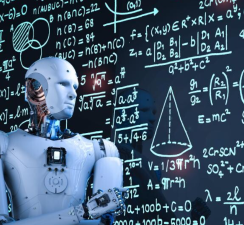The rapid development of science and technology has made artificial intelligence (AI) a hot topic in contemporary society. While we enjoy the convenience and efficiency brought by artificial intelligence, we can't help but wonder: Will artificial intelligence have independent consciousness, or will it always be controlled by humans?
The issue of control over artificial intelligence involves multiple levels, including technological, social, and philosophical ones. Currently, AI systems are primarily designed, deployed, and regulated by humans, but as algorithmic complexity increases, the dynamic relationships of control become more intricate. Artificial intelligence is not merely about passively identifying existing knowledge in a knowledge base; it requires enabling machines to learn autonomously. This raises concerns that once robots possess autonomous learning capabilities, their evolutionary capacity may surpass that of humans, to the point that one day robots may outpace humans. Perhaps the solution in the future is to establish some kind of "contract" between humans and robots, which would make powerful robots submit to "weak" humans.

Robots and Humans
Concerns about technological progress can be found in some early stories about robots and artificial intelligence.
Most importantly, this is Karel Čapek's 1920 play, *Rosso's Universal Robots*. Čapek coined the term "robot" in this work about creating robots to replace workers. It inevitably ends with the robots violently rebelling against their human masters.
Fritz Lang's 1927 film Metropolis also centers on a rebellious robot. But here, it is human workers, led by the iconic humanoid robot Maria, fighting against capitalist oligarchs.
The advancements in computer technology since the mid-20th century have only exacerbated anxieties about technology spiraling out of control. The lethal HAL 9000 in 2001: A Space Odyssey and the malfunctioning robotic gunmen in Westworld are prime examples. Similarly, Blade Runner and The Matrix series depict terrifying visions of evil machines equipped with artificial intelligence, intent on destroying humanity.
The Impact of Artificial Intelligence Development
The development of artificial intelligence has undoubtedly brought great changes to human life. From voice assistants in smartphones to intelligent robots on automated production lines, from auxiliary systems in medical diagnosis to risk prediction in the financial field, the application of artificial intelligence is everywhere. With their powerful data processing capabilities and precise algorithms, they efficiently complete various complex tasks, saving time and energy for humans.
However, with the continuous advancement of artificial intelligence technology, some concerns have also arisen. Some people worry that artificial intelligence may develop independent consciousness and thus get rid of human control. When artificial intelligence has the ability to think and make decisions for itself, will they put human interests behind their minds and act according to their own wishes? If there really comes such a day, how will humans deal with this unprecedented challenge?
But from the current level of technology and development trends, artificial intelligence is still under the control of humans. At this stage, no matter how advanced artificial intelligence is, it is just following the programs and algorithms set by humans. They have no emotions, desires, creativity, or self-awareness. Every decision they make is based on the analysis and learning of large amounts of data, rather than internal autonomous thinking.
In the foreseeable future, artificial intelligence will still serve us under human control. But we must continue to pay attention to its development, guide its development direction with a scientific attitude and method, and make artificial intelligence a capable assistant to humans, rather than a threat. Only in this way can we coexist harmoniously with artificial intelligence in the wave of scientific and technological progress and create a better future together.

